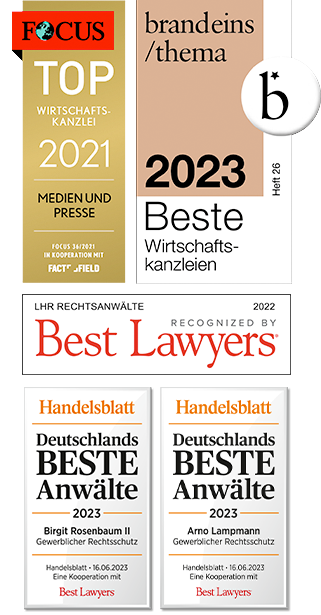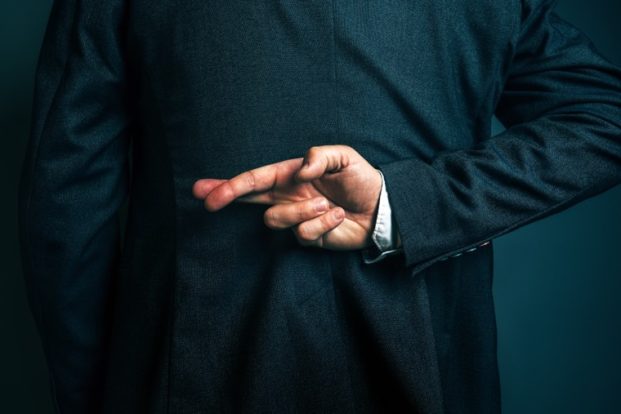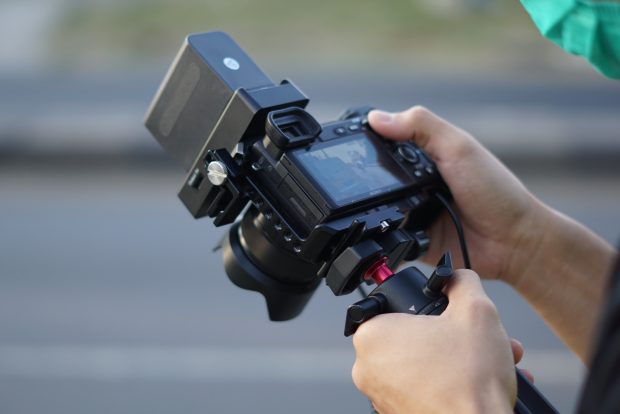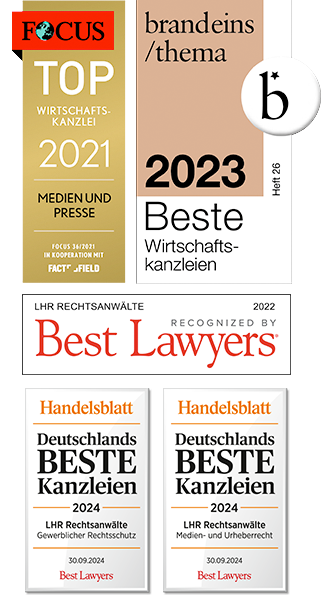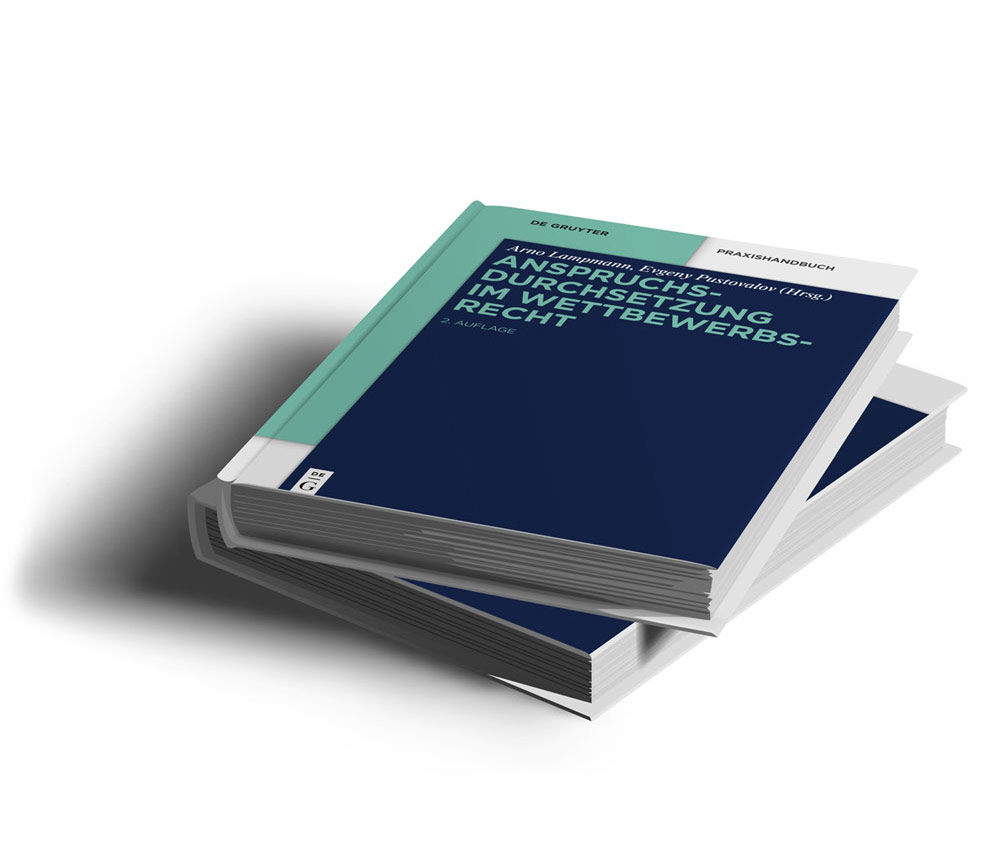LHR obtains four interim injunctions and a fine of €12,000 against ‘coaching’ company and affiliated ‘specialised publisher’
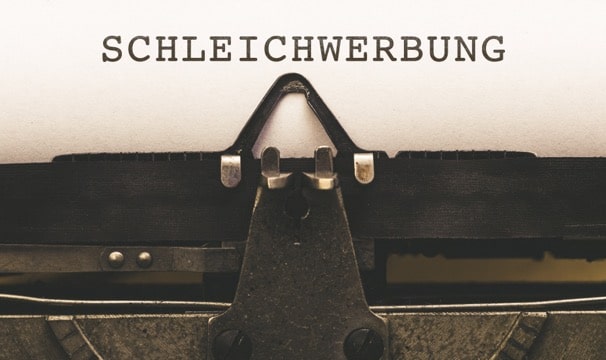
At the request of one of LHR’s clients, the Frankfurt Regional Court issued a total of four interim injunctions against a ‘coaching’ company and a ‘specialised publisher’ for surreptitious advertising in two articles and two YouTube videos.
The quick orders prohibit the companies and the persons responsible from using third-party images and giving the impression that certain articles and videos are independent journalism, when in fact they are simply advertising.
Advertising is subject to rules
Advertising must adhere to rules. These arise from numerous regulations, primarily the Unfair Competition Act (UWG).
In particular, business communication must be recognisable as such. Otherwise it is colloquially referred to as surreptitious advertising. The potential customer must know whether promotional or critical statements are actually based on the – more or less objective – assessment of an independent third party, e.g. a journalist, or are simply intended to increase sales or bash competitors. The public naturally places more trust in the opinions of third parties than in advertising claims made by the entrepreneur himself.
The press doesn’t beat the drum for everyone
Of course, the boundaries between objective reporting and advertising are blurred. There is often a journalist who personally likes the product or service. He or she will then drop the odd exuberant word without being paid for it and without overstepping the boundaries of what is permissible. Apple and Tesla are two of the companies that are particularly adept at persuading the press to praise their products in a grey area, but this does not make them ‘surreptitious advertising’. Of course, this is no coincidence, but requires not only skilful marketing but also a trustworthy brand.
‘Also critical, but always fair’
Quite exhausting, apparently thought a young ‘coaching’ company and looked for a quick alternative solution. If the existing press companies weren’t reporting as desired, why not set up your own ‘specialised publisher’?
A seemingly ingenious move, as it meant that the portal set up for this purpose could be used to provide positive coverage for favourite companies – at best for a fee – and to criticise the less well-liked competition. All under the guise of independent, ‘opinionated, even critical, but always fair’ journalism. A ‘specialised publisher’ was thus founded, which, however, was anything but independent, but was intertwined with the ‘coaches’ in terms of business and personnel.
A nice side effect of this construct was also that competitors could be sent alleged ‘press enquiries’ under the guise of journalistic due diligence and thus possibly persuaded to disclose internal company information that they would otherwise never have revealed.
‘What do I have to read about the competition in this completely independent ‘specialised publisher’?’
But the ‘fake specialist publisher’ was not enough: in order to maximise the reach of the ‘criticism’ launched in this way, the ‘coaches’ published videos on their YouTube channel in which the – apparently independent – reporting of the ‘specialist publisher’ was read out with artificial astonishment and indignation and thus reproduced once again (‘reaction video’).
The ‘coaches’ and the ‘specialised publisher’ would not let it go
A competitor of the ‘coaches’ who was ‘criticised’ in this way finally wanted to put an end to this activity after some goodwill and did just that with the help of LHR.
After the offer of an out-of-court injunction agreement was rejected by the ‘Coaches’ and the ‘specialised publisher’, corresponding applications for interim injunctions were necessary, which the Frankfurt Regional Court issued immediately (LG Frankfurt a.M., Beschluss v. 7.12.2022 , Az. 2-3 O 371/22, LG Frankfurt a.M., Beschluss v. 29.12.2022, Az. 2-3 O 391/22, LG Frankfurt a.M., Beschluss v. 20.1.2023, Az. 2-3 O 373/22 and LG Frankfurt a.M., Beschluss v. 19.1.2023 ,Az. 2-03 O 394/22, all not legally binding).
The court shared the view of the applicants that the articles and the accompanying videos were ‘surreptitious advertising’, i.e. publications that merely pretended to be independent, objective reporting, while in reality they were disdainful self-promotion or disparaged a competitor under the guise of ‘journalism’. The use of third-party images was even more unlawful.
A fine of up to € 250,000 or imprisonment is threatened
In the event of non-compliance, the ‘Coaches’, the specialised publisher or the persons responsible are threatened with a fine of up to € 250,000 or up to six months’ imprisonment.
Fines have already been forfeited in one case
In one case, fines totalling € 12,000 have already been imposed for non-compliance with the prohibition order. Although the defendants had cleverly ‘improved’ the situation, this was not enough for either the applicant or the district court, so that a fine was imposed on the parties involved (not legally binding).
UPDATE 7.11.2023 – ‘specialised publisher’ withdraws appeals
Following the refusal of the ‘’specialised publisher‘’ to recognise the interim injunctions as a final ruling, we had to file an action on the merits due to the impending statute of limitations, but the publisher had lodged an appeal against the interim injunctions. This appeal was finally heard today. With a pleasing result: after the chairman had introduced the facts of the case and the dispute and communicated the Senate’s opinion, the ‘’specialised publisher’s‘’ attorney withdrew both appeals.
Expensive fun. However, the defendants must now not only bear the costs of the two proceedings through two instances totalling around €30,000, but also pay damages, which will no longer be in the mere 5-digit range.
Lawyer Arno Lampmann from LHR:
‘Professional coaching (commonly known as management consultancy) offers added value that should not be underestimated if it has a solid foundation. Good advice can lead to considerable – possibly previously unimagined – economic success. Of course, consultants are paid accordingly for this service. However, these earning opportunities not only attract serious and sustainable players, but also those who want to help their success with – to put it mildly – unconventional methods. This is also the case here. In this case, the coaches simply produced the desired ‘press coverage’ themselves, which was positive for themselves and negative for their competitors, and then quoted themselves with feigned indignation in ‘reaction videos’. Clever, but inadmissible.’
